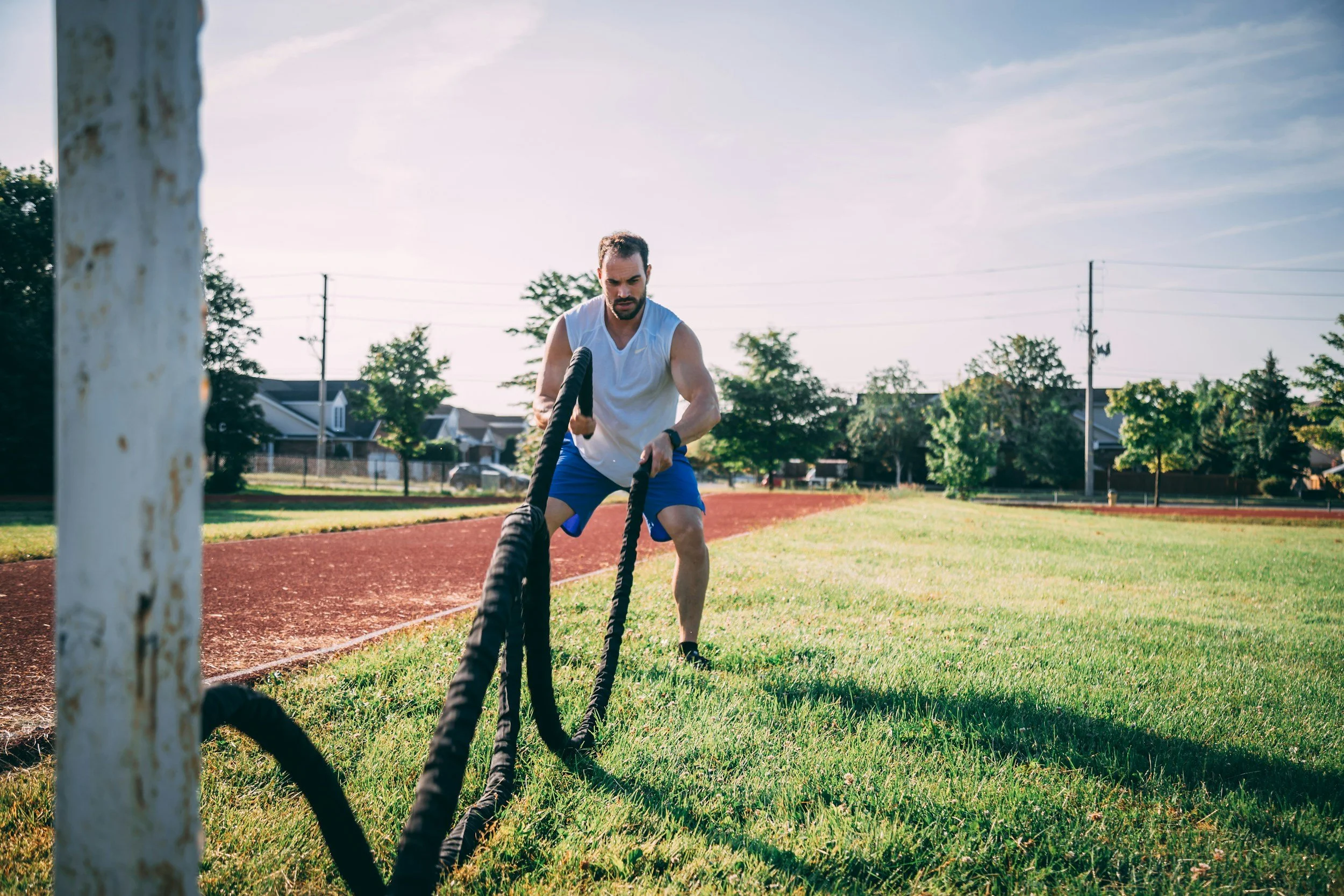Unlocking Your Body’s potential
The best ways to help your body rest, refuel and recover to ensure you come back stronger after a challenging bootcamp session.
Whether you're just getting started on your fitness journey or you're a seasoned athlete, one thing is true for everyone: recovery matters. In fact, how you recover from exercise can be just as important as the workout itself. Taking care of your body and mind after exercise helps improve performance, prevent injury and reduce muscle soreness by giving your body time to adapt to your training, allowing you to become stronger and fitter, as well as making exercise something you can enjoy and sustain long term.
Let’s explore ways in which we can all benefit from supporting our bodies post-exercise, no matter what your fitness level is, your age, or your goals.
Take the Time to Cool Down
After you finish a workout, resist the urge to stop abruptly. Instead, spend 5–10 minutes helping the body transition back to it’s resting state by cooling down with gentle movement—like walking or stretching. This helps your heart rate and blood pressure gradually return to normal, preventing dizziness and feeling faint. It can help reduce muscle soreness and speed up recovery by removing metabolic waste products like lactic acid. There is also the opportunity to improve flexibility and range of motion by stretching whilst the muscles are still warm, this can in turn aid in improving future performance.
Tip: Focus on slow, deep breaths, inhaling through your nose and out through your mouth during your cool-down. This helps to calm your nervous system by reducing stress hormones, lowering your heart rate and promoting a sense of calm. On top of this you’re obviously exercising outdoors as well, so you have the added bonus of nature providing that calming affect too.
Hydration is Key
Sweat is your body’s way of cooling off, but it also means you lose fluids and electrolytes. It is important to stay hydrated throughout your workout to help regulate your body temperature, support your muscles and to prevent dehydration. It is crucial that this continues after your workout ends to replenish lost fluids from your body, and to help repair and support your muscles and joints. It also helps to prevent fatigue and flush out waste products which can help reduce muscle soreness, so that you are ready and raring to make the most of your next bootcamp session.
Tip: Electrolytes are a great way of ensuring proper hydration because they contain essential trace minerals. Our bodies use these to help reduce inflammation, reduce fatigue and to help with brain fog and headaches. They should be an everyday essential regardless of whether you are working out or not, but they should at least be used to rehydrate your body properly after exercise to help muscle recovery, improve energy levels and prevent cramps.
Refuel Your Body
Food is fuel, especially after you’ve worked hard, so it’s important to refuel your body to repair muscle damage and restore energy levels. It’s important to eat a healthy and balanced diet for optimal health, wellbeing and weight management anyway, but feeding your body the right nutrients after exercise plays a vital role in recovery and preparing your body for its next session. Aim to eat a lean and high protein meal or snack (aim for at least 30 grams, although it is recommended that women in perimenopausal years or older increase this) to help your muscles heal and recover, with complex carbohydrates to replenish energy stores, ideally 30-60 minutes post-workout, (women ideally within that 30 minute window) as this is when your muscles are most receptive to nutrients.
TIP: Listen to your body. Adjust your intake based on your workout intensity, body weight and goals, and for women your age and where you are in your cycle, and pay attention to your hunger and fullness cues. Experiment with different foods to find what works best for you.
Mobility Work
Recovery isn’t about being still. It is beneficial to include mobility exercises into your routine that work your joints through their full range of motion to keep them strong, mobile and to maintain ease of movement. By working on improving your joint stability and muscle flexibility you reduce your risk of injuries and falls, enhance your athletic performance and improve your body’s ability to perform everyday movements, which ties in perfectly with bootcamp’s focus on functional fitness and supports your goal of ‘Train to Live.’
TIP: Consistency is key. Spend a few minutes dedicating time to a specific mobility session or incorporate into your warm up before exercise. You’ll get a taste of some of these at bootcamp. Move slowly, breathe deeply, and don’t push into pain.
Prioritise Sleep
Sleep is essential for your physical and mental health. It is your body’s natural recovery mode in which your body, including your muscles, repair and your immune system strengthens. It helps reduce the risk of certain health conditions and regulates your metabolism and appetite, reducing cravings and assisting with weight management. It’s vital for brain health and function, emotional regulation, stress management and mood improvement. Aim for 7–9 hours if possible. Another bonus of bootcamp is that regular activity helps improve sleep and being exposed to natural light from exercising outdoors helps to regulate your circadian rhythm.
Sleep tip: Avoid screens right before bed and keep your room cool and dark. Try a calming activity before bed to help you relax, like reading, listening to relaxing music or having a bath. Limit caffeine and alcohol, and be mindful of your sugar intake, especially in the evening. Even small changes can help you rest better, focus on one thing at a time rather than make lots of changes at once.
Listen to Your Body
Some days you bounce back quickly and other times your body needs a bit longer. That’s okay. Soreness, fatigue, and even mood can all be signs to take it easier. Recovery looks different for everyone and can change from day to day. Gentle movement like walking, swimming and mobility or utilising massage, an ice bath or sauna, a bath with Epsom salts in it to soothe sore muscles and reduce inflammation, are all options that help promote blood flow and recovery without overdoing it.
TIP: Trust yourself.
7. Don’t Skip Rest Days
Rest days are productive. They allow your muscles and joints to recover, your energy to reset, and your motivation to stay high. Without rest, you risk burnout, injury, or just not enjoying the journey.
TIP: Think of rest as part of your progress, rather than a pause.
A Final Note
Exercise is an act of self-care and recovery is too. No matter who you are or where you are in your journey, taking time to recover helps you move with more purpose, strength and energy, and allows you to maximise your workouts so that you can be the best version of yourself now and in the future. It’s about progressing and being consistent whilst being kind to your body.
So, the next time you finish a workout, give yourself permission to rest, refuel, and recover. You’ve earned it!




